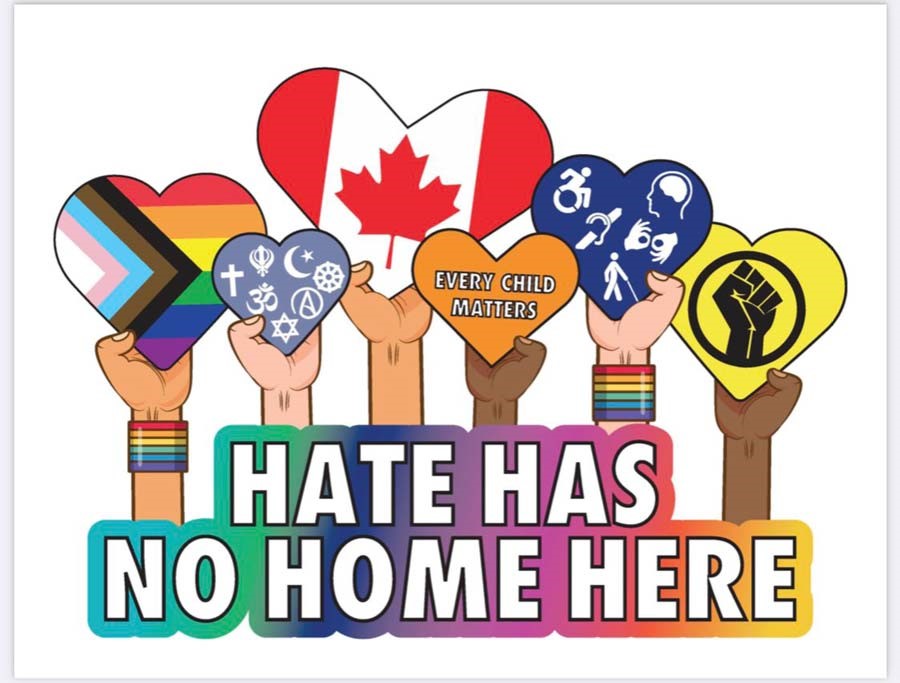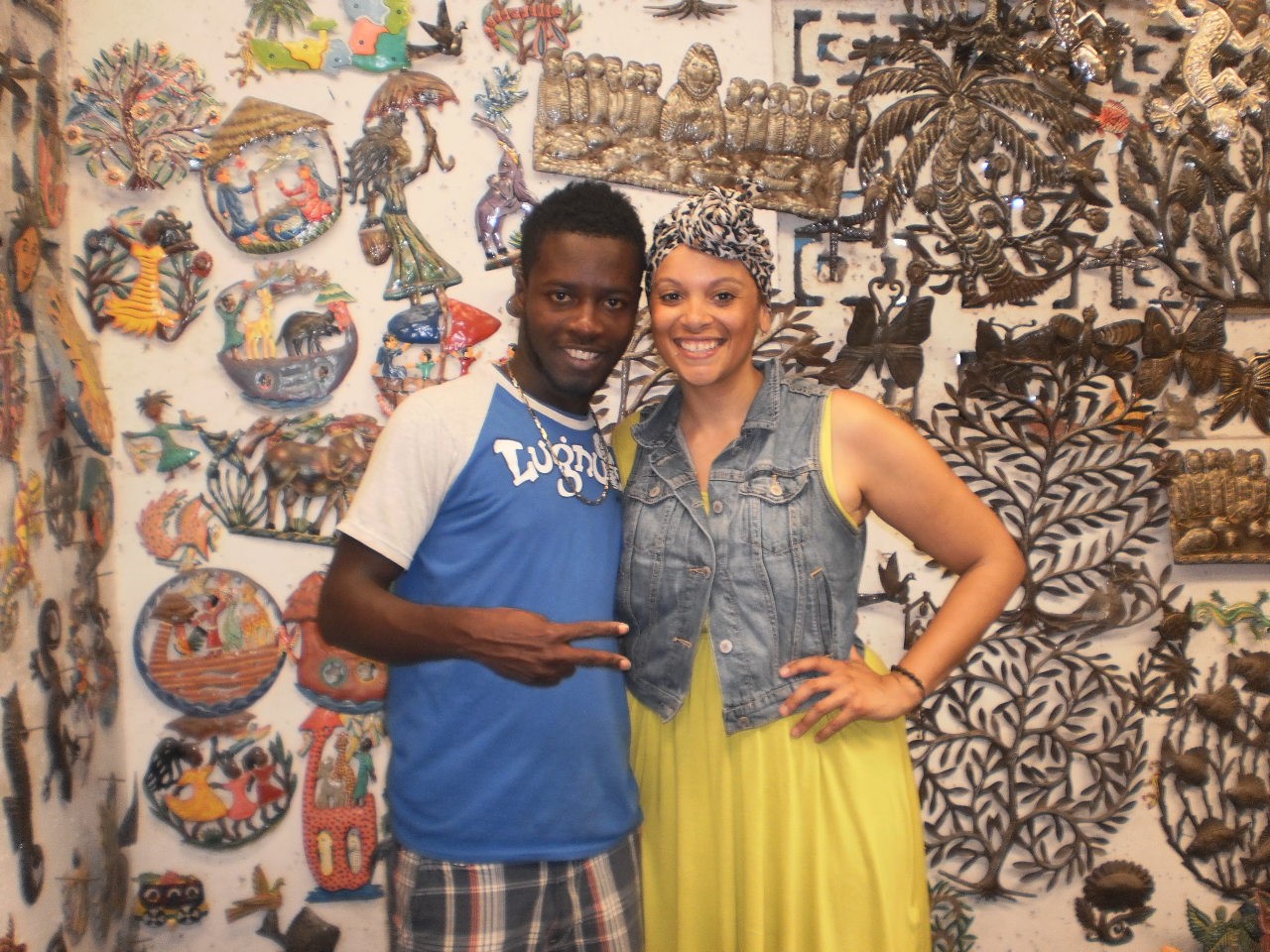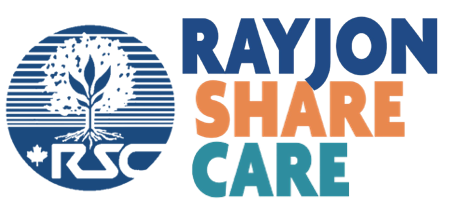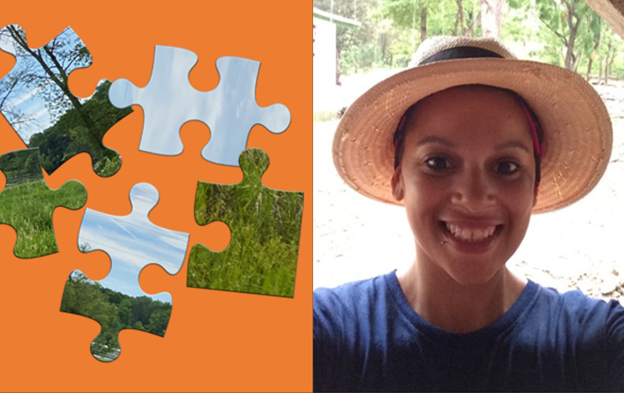Hate Has No Home Here
An interview with Lindsey Travis
Lindsey Travis is the John Howard Society’s Project Coordinator with Sarnia Lambton Alliance Against Hate (SLAH), an organization that was recently formed as a partnership between the John Howard Society of Sarnia Lambton, Lambton Kent District School Board, Sarnia Lambton Local Immigration Partnership, and the Sarnia Police Service. The program was launched after it received a provincial grant through the Safer and Vital Communities Grant.
This is her story… [Interviewed by Gord Walkling, October 2021]
Let’s step back a bit. You have also been involved with Rayjon. Tell us about the different ways you have volunteered.
I was first introduced to Rayjon through a friend, who shared about the impactful projects that Rayjon facilitates. As I found out more about the organization, I embraced opportunities to be involved and felt honoured to participant in a variety of ways, including joining and co-leading awareness trips to Haiti, the Fall Fair, and the Women Helping Women events. I was also able to see first-hand what can happen when individuals come together for the greater good, to spark a conversation about equality, both locally and internationally.
A focus of Rayjon is to bring awareness to Canadians of what it is happening in Haiti and the Dominican Republic. Due to the experiences I have had with Rayjon I have learned that social issues around the world are diverse, yet similar.
How did your experience with Rayjon lead you to get involved with the work of the SLAH?
Rayjon has been a source of awareness and support for so many people, much like the John Howard Society in matters of social justice. Both organizations acknowledge that the experiences individuals have and the hardships that can befall them, are not exclusive, but are interconnected with greater societal issues and injustice. Therefore, when they are addressed, the outcomes can improve the well-being of not only those directly impacted by the issue, but for all of humanity.
Rayjon represents what it means to be active in addressing social justice issues, particularly when it comes to females, and those with limited means. Rayjon shows up and works alongside individuals in a way that supports the goals and plans of those who are receiving the support. They recognize that the individuals living the experience are the expertise in what will work well, rather than what is only a good plan in theory. It is because of this approach that Rayjon is a collaborator on this project. They recognize the importance and value of working together and making honest and conscious choices to engage individuals in the community that they are assisting, without imposing.
SLAH is a program that is very much based in community connections with everyone, regardless of their background, ability, beliefs, and skills, because we acknowledge that Sarnia is diverse. Unless we embrace this diversity and are inclusive in action then we are not fulfilling the potential of the program.

Often there’s a personal connection that motivates us to volunteer. Would you care to elaborate further on this?
As a black female I recognize the presence of discrimination and have experienced it myself and so when I found out about the Sarnia Lambton Alliance against Hate program, I knew that I wanted to be part of this movement.
It’s an issue that historically has not been addressed in a way that all citizens are encouraged to have the honest and challenging conversation about what is happening locally. People tend to respond to hate-motivated acts with silence, and the silence suggests that the issue does not exist, but it does.
There are not a lot of supports that are tailored to the experience of hate-motivated acts, not only in Sarnia but also across Canada, and so when the concept of this program arrived, I knew that it was going to be something big.
How does SLAH address the problem of Hate?
A hate or bias motivated act includes harassment, assault, vandalism of personal property, intimidation, and threats of violence.
SLAH is a program that has been created from the beginning through consultation and collaboration with the community. It is focused on working together with the community to create a sustainable program that can be created, implemented, shared, and grown with the community.
The program is designed to walk alongside individuals when they have witnessed, or been a target of, or impacted by hate-motivated acts. The support includes:
- Providing emotional support to the targets of such acts
- Working collaboratively with program partners to address potential barriers to reporting
- Educating the community about hate crimes and their impact on individuals and communities
- Exploring ways to be an ally to peers, neighbours, and colleagues
- Providing community resource information related to social services and other support institutions and community groups.
This impact of connecting to one another through conversations is a significant aspect of this program, and in sharing the impact that acting in kindness can bring. As we continue to bring awareness to the program’s existence it is our hope that those who may have been hesitant to come forward in the past to report or talk about an incident, may feel more comfortable reaching out knowing that they will be received with dignity, respect and acceptance.
As the Project Coordinator, what are your hopes for the program?
The hopes for the future of the program are that it will foster honest discussions amongst individuals, including individuals that have experiences and beliefs that do not align with our own. When we can learn from one another and begin to talk in an open and non-judgemental way then we can begin to bring forth positive change. It is our hope that Sarnia Lambton will be known as a community that reflects acceptance, inclusion, and diversity in many forms.
SLAH hopes to be a driving force for change in the community when it comes to addressing acts of hate. As the program continues, we will focus on increasing awareness as to what a hate-motivated act is, and its impact, as well as foster opportunities for individuals to come forward to report these acts in a supportive environment.
We will also be seeking opportunities to receive feedback regarding the service provided, and any opportunities for improvement. We acknowledge that as time evolves the needs of the community will change as well, and so the more feedback that we can gather about the support offered the more effective and impactful we can be.
It is also our hope that this program will provide a base for which other John Howard Society branches can replicate to connect, support, and engage as many people as possible.
How can we support the work of SLAH?
Community members of all ages can support the program by engaging in discussions about what they are experiencing as well as sharing the name and information about the program so that if, or when, someone may want to talk, they will know that there is someone here to listen. Talking about this issue is difficult because it has not historically been something that has been discussed openly. However, it is a reality for many individuals, so the simple act of acknowledging a person’s experience is significant and can assist them in sharing how the incident affected them. SLAH’s function is to provide education to community members, organizations and service providers, and provide tips on how to support one another in a victim-focused way. And offering support to those impacted by hate through various forms ex. Support in cleaning up graffiti, referrals, advocacy, etc.
How can I learn more about volunteer opportunities with SLAH?
SLAH is currently looking for a diverse group of individuals to volunteer in supporting others. A volunteer information session will be held on Thursday, Oct. 28 at 2 p.m., at the Insignia Hotel (283 Christina St. N.).This is a great opportunity to learn more about what we’re doing and an opportunity to really support our community in order to promote inclusiveness and diversity.

Lindsey visits with an artizan in Haiti, 2016

